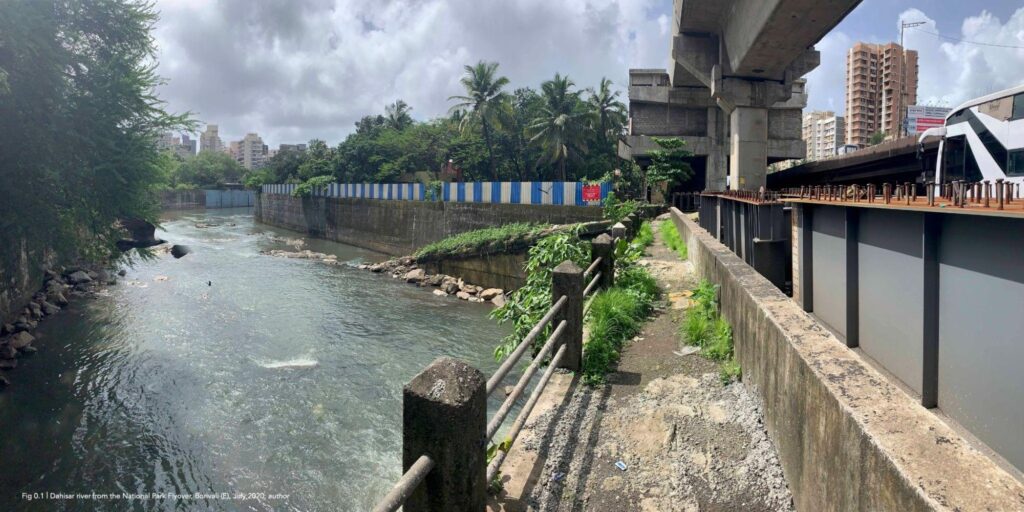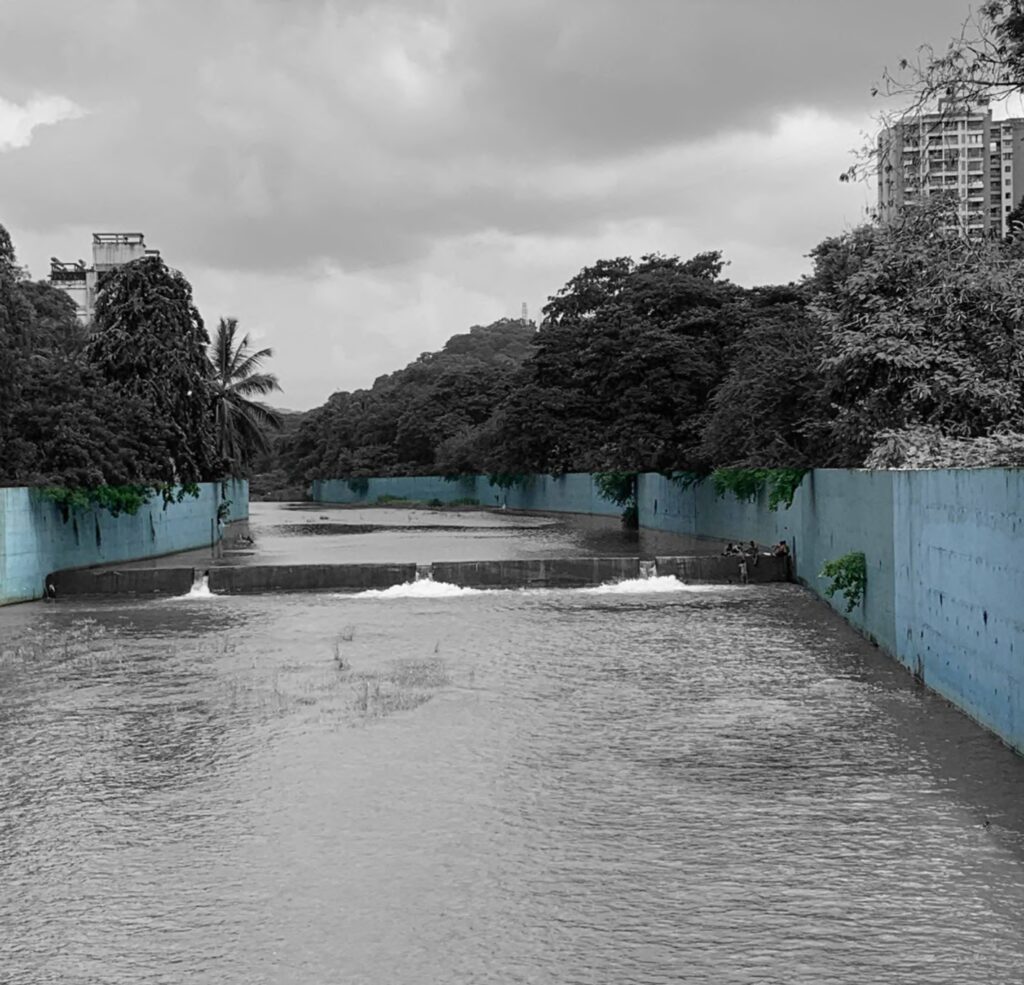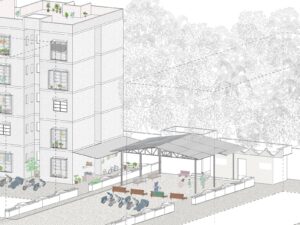What is an Urban Common?- Commons can be understood as cultural and natural resources which are accessible to all and not privately owned. Understanding a city on the basis of the commons requires addressing diversity, collectivity, governance and ownership.
In modern day cities of India, with the transformation of the nature of settlements from rural to urban, there is a change in the relationship between the commons and the communities. Modern bureaucratic systems which stem from neo-liberal ideas of development have replaced the traditional systems of resource management. Most of the natural systems in cities are governed and managed by the development authority bodies run by the state. The urban rivers in Mumbai can be looked at to demonstrate the ‘tragedy of commons’ as a result of the urban transformation. In the imaginations of futuristic ‘smart cities’, the rivers fail to stand a place for the citizens to have a relationship.

The advent of new rationalities can be reflected in our planning, emerging post the global phenomenon of ‘environmentalism’. Policymakers and environmental practitioners often envision the urban future relieved through infrastructural innovations. The approach to development is often just technocratic, which turns an blind eye to socio-ecological values. These re-shape the meaning and values associated with ‘water’ in the urban landscape.
The state’s policies also envision concepts like ‘Slum free’ and ‘encroachment free’ when it comes to developing an urban riverfront. In this quest for ecological consciousness, the urban poor are inevitably always destined to be in the front line withstanding them. The casualties like flooding, water crisis, social exclusions, caused by the failed infrastructural planning characterizes the urban life in most of the cities in India.
The state which is ironically responsible for planning most of the debacles of the city, often shifts the concerns and proposes river ‘restoration’ and ‘beautification’ projects to do the damage control and save the rivers, where most of these projects often have a piecemeal approach, and do a botched job in imitating Eurocentric ideas of a concretized riverfronts. These schemes are envisioned to commercialise and ‘beautify’ the river.

Unfortunately these projects have little or no attention to the traditional perceptions of the water bodies. What these projects do is brutally destroy the river ecology and normalise the complete neglect towards the ingenious communities- their livelihoods and homes in policy making.
The urban planning approach neglects all socio-ecoloical considerations and requires scrutiny. We need to advocate for an alternate framework that prioritizes the values associated with our ecological landscapes above its commercial one.
Comments from Mentors
“This is a fantastic topic but the piece needed much tighter editing and better structuring.” – Arpita Das, Mentor, Urban Imprints
“Mature, has a good understanding of a complexity of issue, critical voice.” – Peeyush Sekhsaria, Mentor, Urban Imprints







